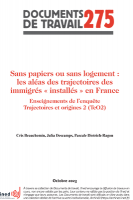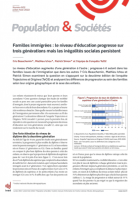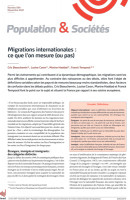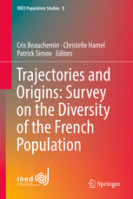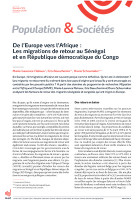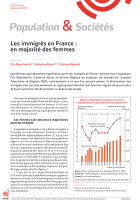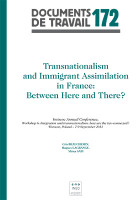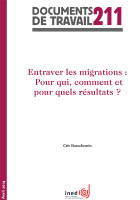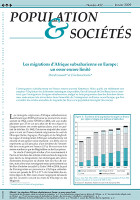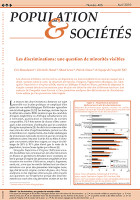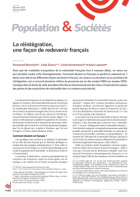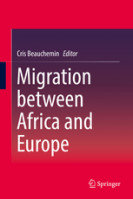
Migration between Africa and Europe
2018, 453 pagesÉditeur Springer
- Introduction
Beauchemin, Cris - Migration Between Africa and Europe (MAFE): Advantages and Limitations of a Multi-site Survey Design
Beauchemin, Cris - African Migration: Diversity and Changes
Schoumaker, Bruno (et al.) - Migration Between Africa and Europe: Assessing the Role of Resources, Family and Networks
González-Ferrer, Amparo (et al.) - Understanding Afro-European Economic Integration Between Origin and Destination Countries
Castagnone, Eleonora (et al.) -
Migrant Families Between Africa and Europe: Comparing Ghanaian, Congolese and Senegalese Migration Flows
Mazzucato, Valentina (et al.) -
Congolese Migration in Times of Political and Economic Crisis
Schoumaker, Bruno (et al.) -
Congolese Migrants’ Economic Trajectories in Europe and After Return
Schoumaker, Bruno (et al.) -
Migration and Family Life Between Congo and Europe
Beauchemin, Cris (et al.) -
Changing Patterns of Ghanaian Migration
Schans, Djamila (et al.) -
Ghanaian Migration: Economic Participation
Black, Richard (et al.) -
Transnational Families Between Ghana, the Netherlands and the UK
Caarls, Kim (et al.) -
From Senegal and Back (1975–2008): Migration Trends and Routes of Migrants in Times of Restrictions
Beauchemin, Cris (et al.) -
Migrants’ Economic Participation in Origin and Destination Countries: The Case of Senegal
Castagnone, Eleonora (et al.) -
Senegalese Families Between Here and There
Beauchemin, Cris (et al.)
This volume examines migration between Africa and Europe, rather than just from Africa to Europe. Based on a unique socio-demographic survey carried out both in origin and destination countries (MAFE survey), it argues that return migration, circulation, and transnational practices are significant. Policy design must also take these factors into account.
Comparing in a systematic way three flows of African migrants (from Democratic Republic of Congo, Ghana and Senegal), this study offers a new view on the patterns, determinants, and family and economic effects of migration. By comparing six European countries (Belgium, France, Italy, the Netherlands, Spain and the UK), it shows that the dynamics of migration differ greatly in new vs. old destination countries.
Based on a statistical analysis of life histories, this study provides a dynamic view of migration that will help readers better understand current trends as well as future trajectories. It will appeal to researchers, academics, practitioners, and others interested in taking a deeper look in (im)migration issues.





